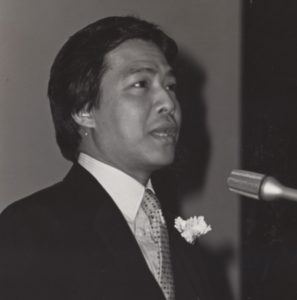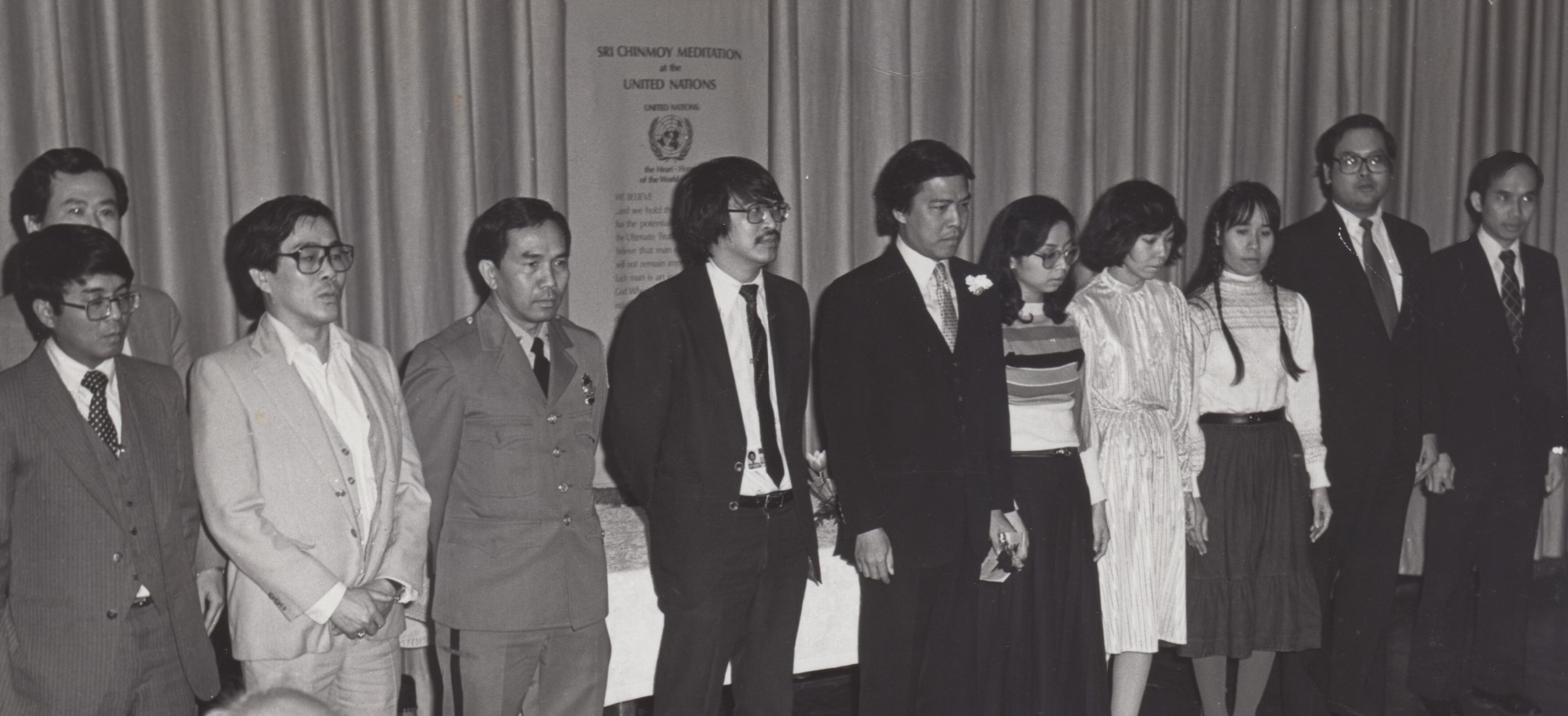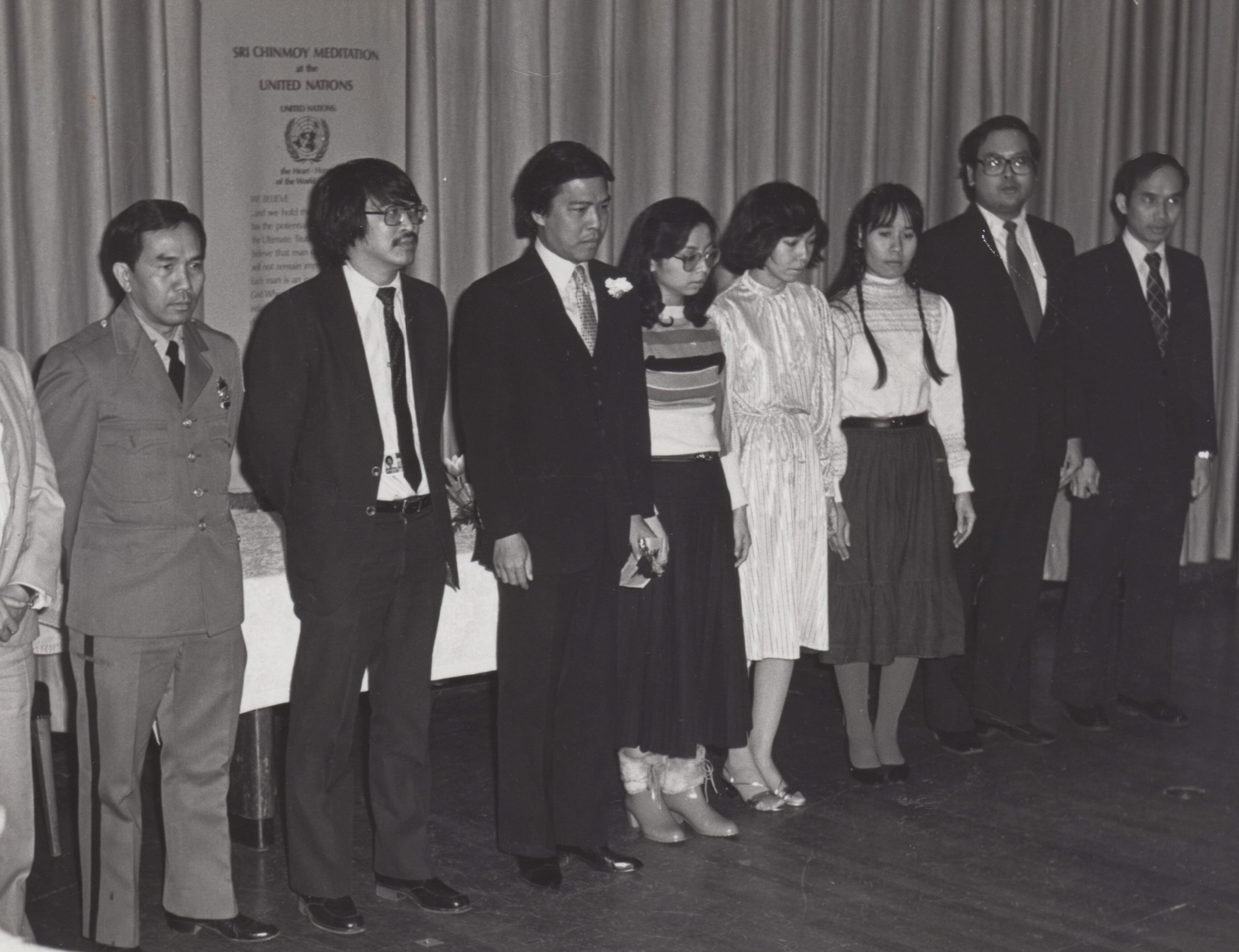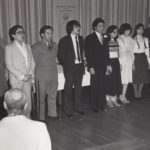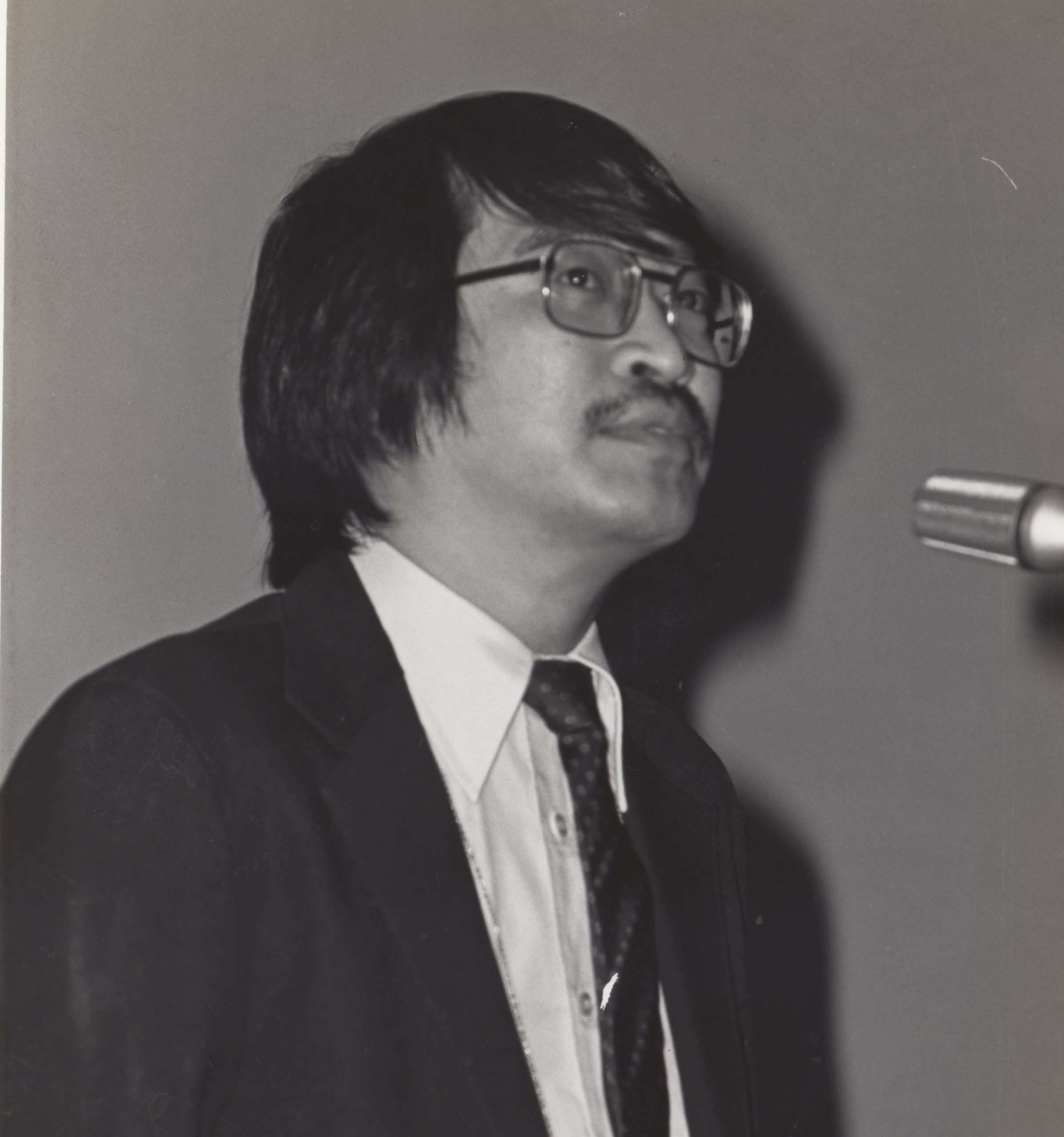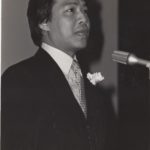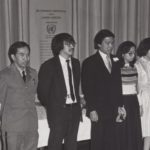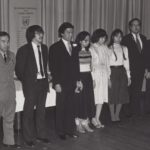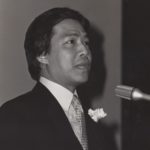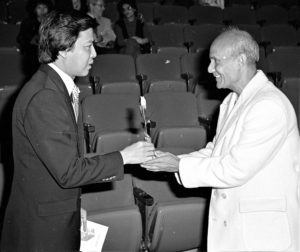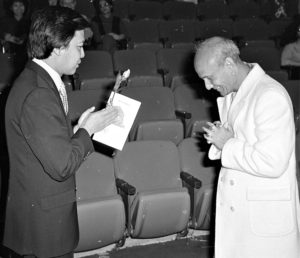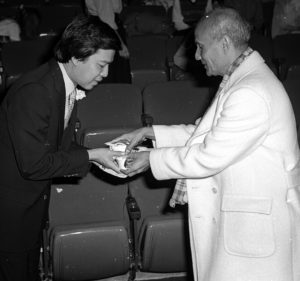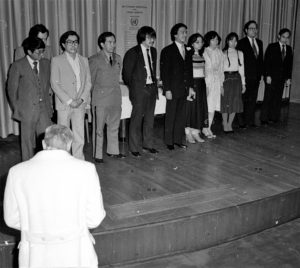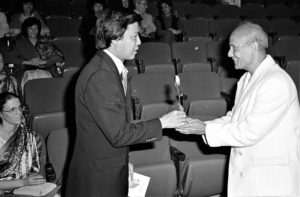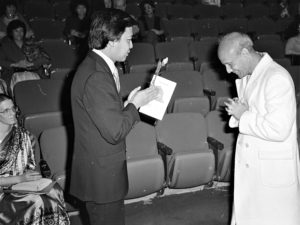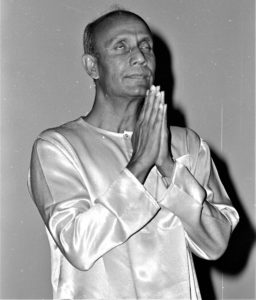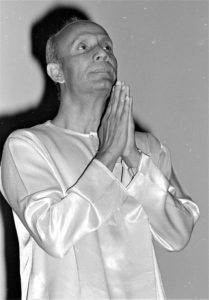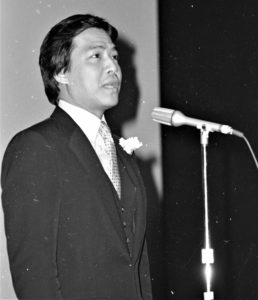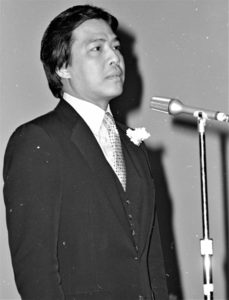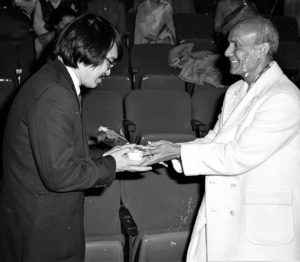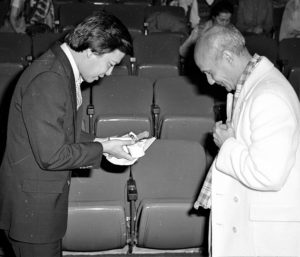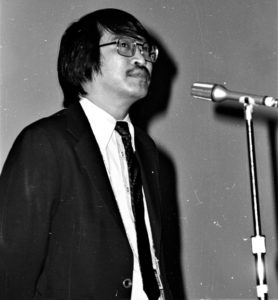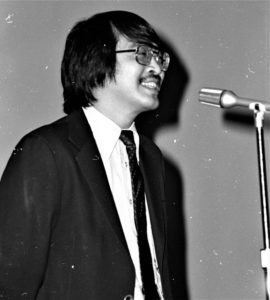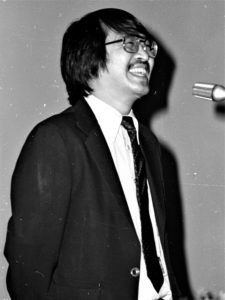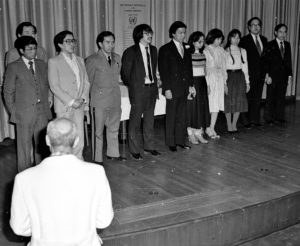International Security and Third World – Amb. Kasemsri, Thailand, 1983 Feb 25
Filed under asia-oceana | Thoughts from the UN community.Excerpts from an address to the Meditation Group by H.E. Mr. Birbhongse Kasemsri, Permanent Representative of ‘Thailand, on 25 February 1983:
“Whatever the perceptions of the major powers happen to be regarding the United Nations, and such perceptions have changed from time to time, the small countries or smaller nations look at the united Nations as a safe harbour. We tend to regard it or use it as a first recourse, rather than a last resort, especially in times of crisis. We attach more importance to the United Nations than perhaps the major powers need to. We can I think derive a source of strength therein, namely the preponderance of members. This strength of numbers should not be detrimental to the United Nations or its image but, on the contrary, it can be used to the advantage of the united Nations to help strengthen its efforts in the world.
‘The smaller states in the united Nations have their share of problems. We feel that
since one of the cornerstones of our foreign policy is the United Nations, we would like to see the United Nations respond more positively to our problems. But living in an interdependent world we appreciate the fact that countries have to live together in brotherhood. And it is not the poor who will rule the world nor the rich, but all of us will share in an equitable manner the resources of man.
- It goes to the crux of the matter if I were to point out that the-smaller countrie5-which-rely 0n the United Nations, can offer a basis upon which the prestige and the effectiveness of the United Nations can be enhanced. There are many crises among small countries in the different regions of the world. If the United Nations can help to resolve these small crises, the regional crises, then these successes will contribute to the building of a better United Nations. The preponderance in numbers of the small countries can then be turned to good advantage. The United Nations has been frequently blamed for exacerbating the problems of the world, not only in failing to contribute to their solution, but also in aggravating those problems. I think this is grossly unjust. Problems are made by man and by nations, and those countries who turn to the United Nations in the last, obviously give the United Nations very little opportunity to resolve these crises. But we ~mall countries always look to the United Nations first, and this is an opportunity, a golden opportunity for the United Nations to try to help us solve these regional problems.
- The preamble of the Charter of the United Nations is a very well-written document and reads so beautifully. It begins with, “We the people of the United Nations determined to save succeeding generations from the scourge of war…” and it continues with the very important passage, “And for these ends to practice tolerance and live together in peace with one another as good neighbours…”
- The last phrase I think touches the heart or the soul of the united Nations. It is something most human beings understand, irrespective of their creed, colour, sex and their economic status in life. Failing to follow these precepts may be the major cause of all the trouble we are having today in the international arena. At the United Nations there is a meditation room, and I dare say, if we diplomats made more frequent use of it, we might contribute our fair share in a more effective way toward strengthening peace and security in our world. By the same token, if world leaders would practice meditation then perhaps they could give new strength, not military, not nuclear, not even economic or financial strength, but inner strength which would lead us to contribute much more effectively towards the desired goals…
– reported in A Moment’s Peace – Newsletter AMP/1983-02 Mar/Apr 1983
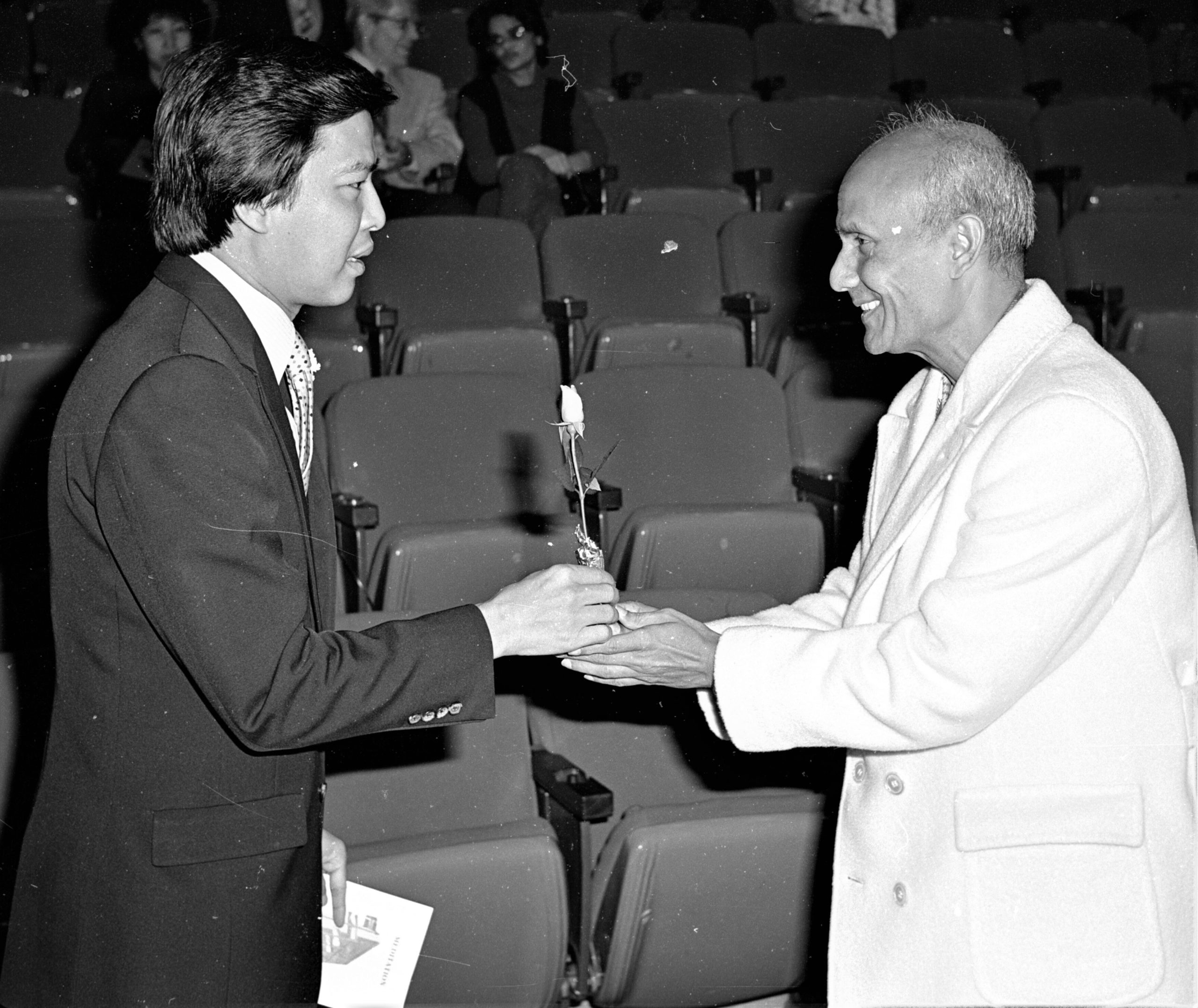
Shraddha
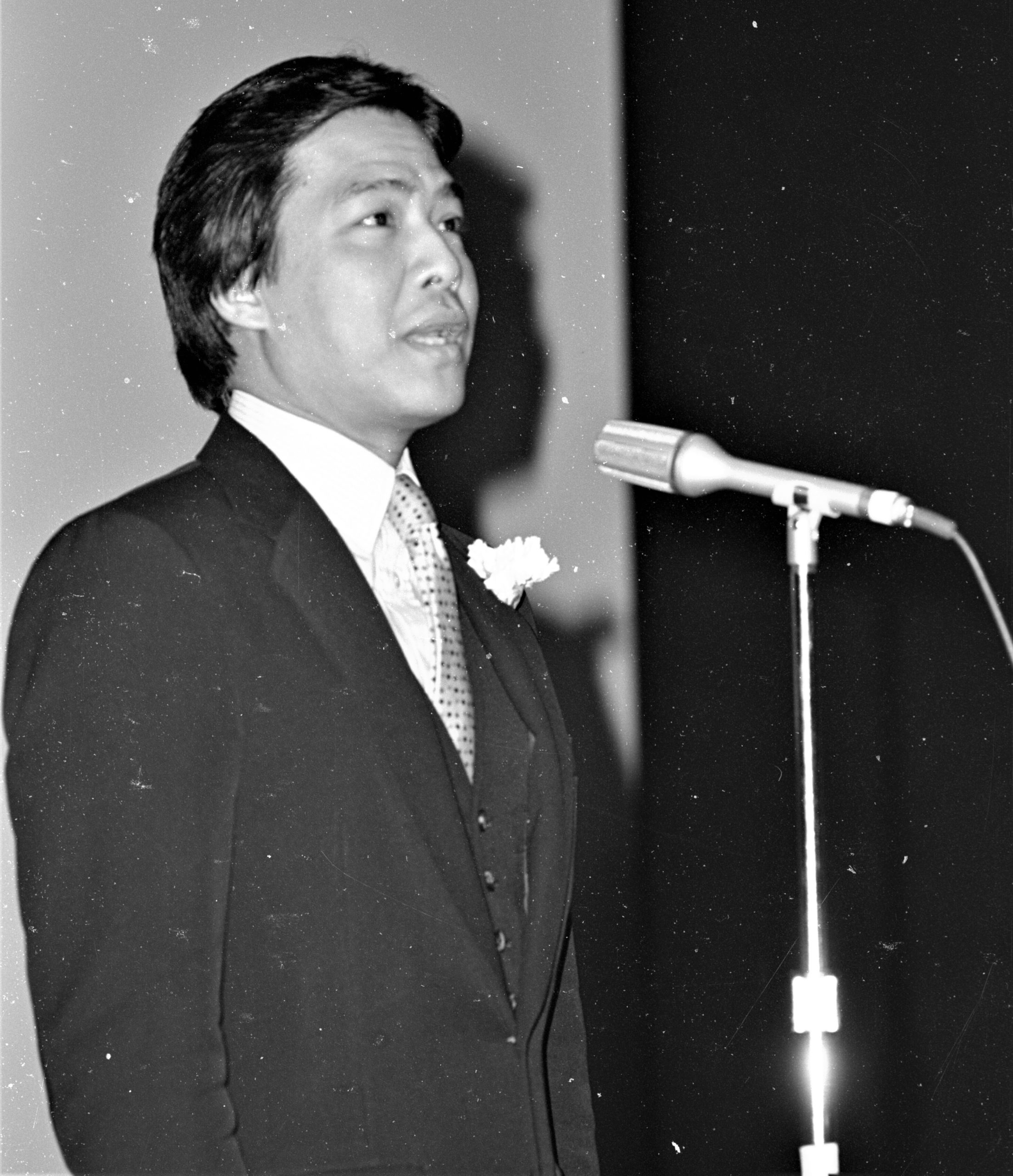
Shraddha
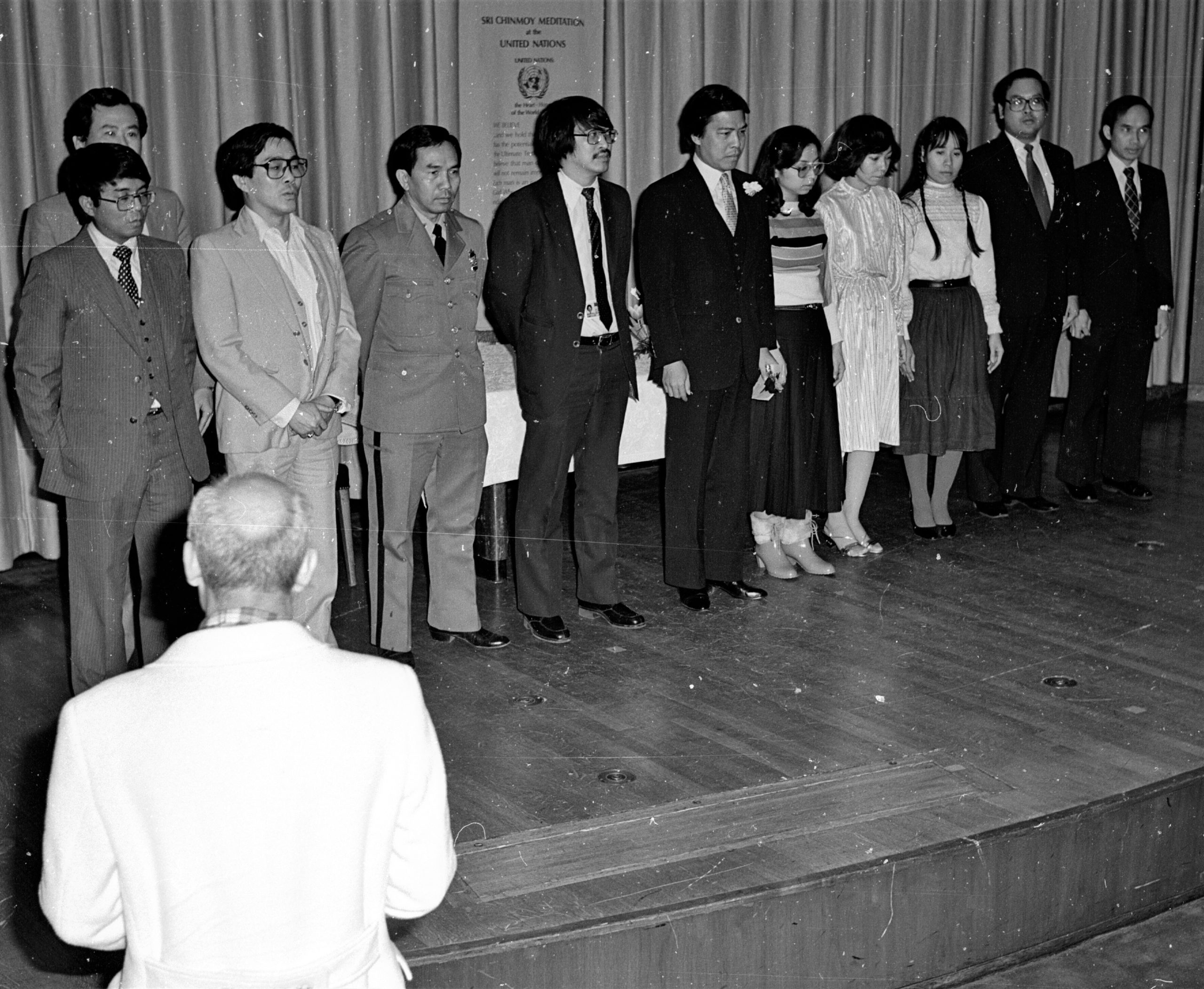
Shraddha
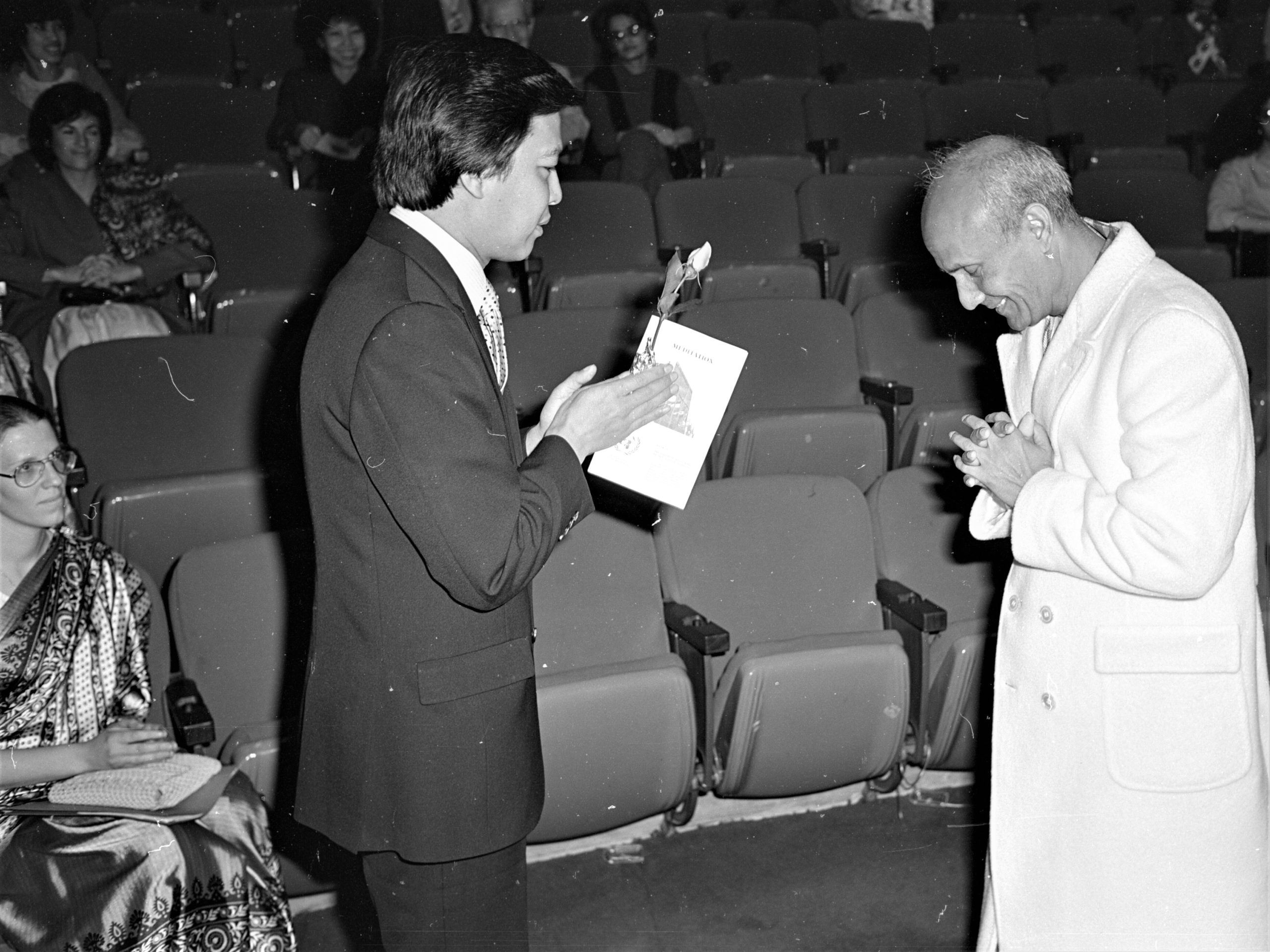
Shraddha
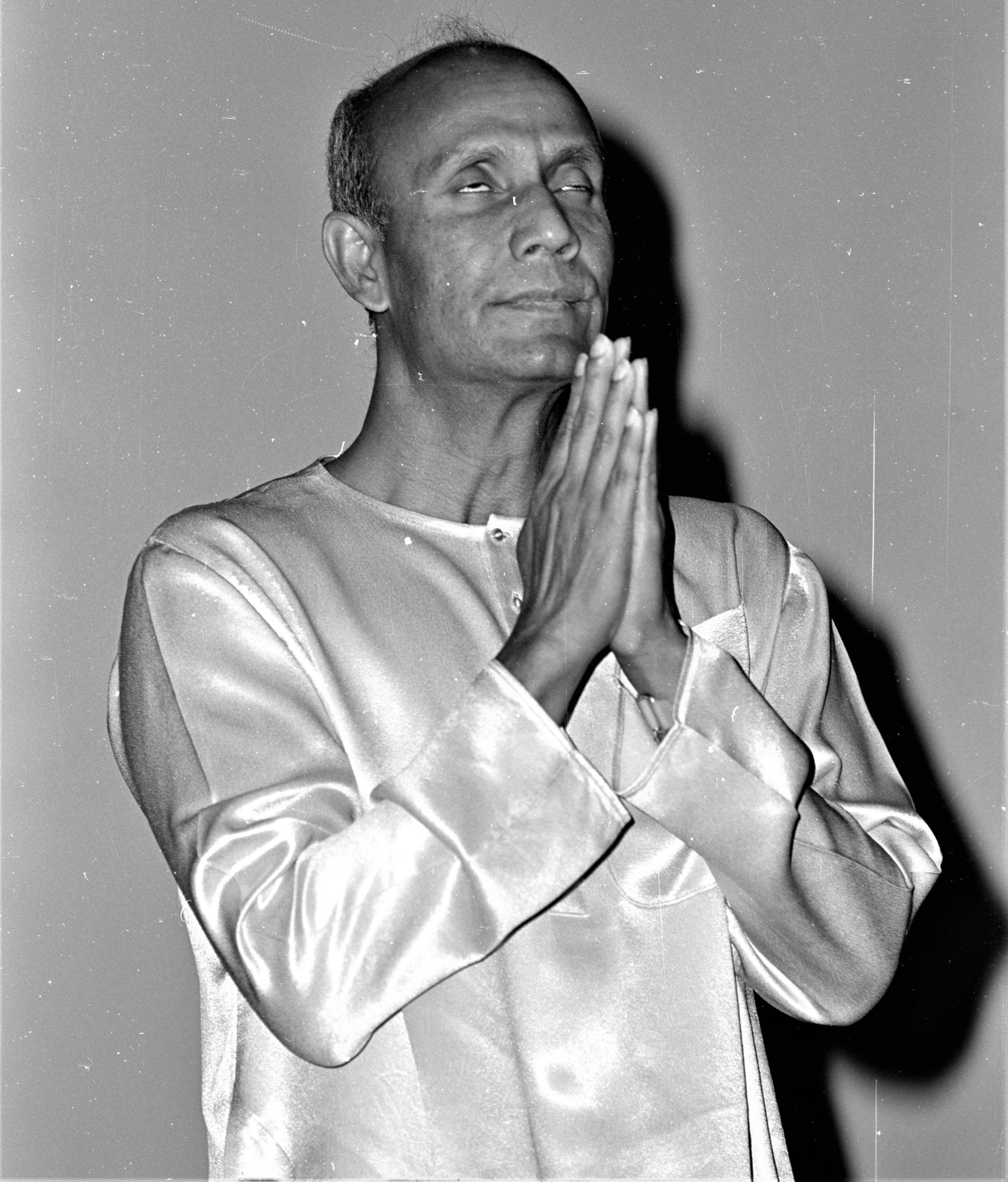
Shraddha
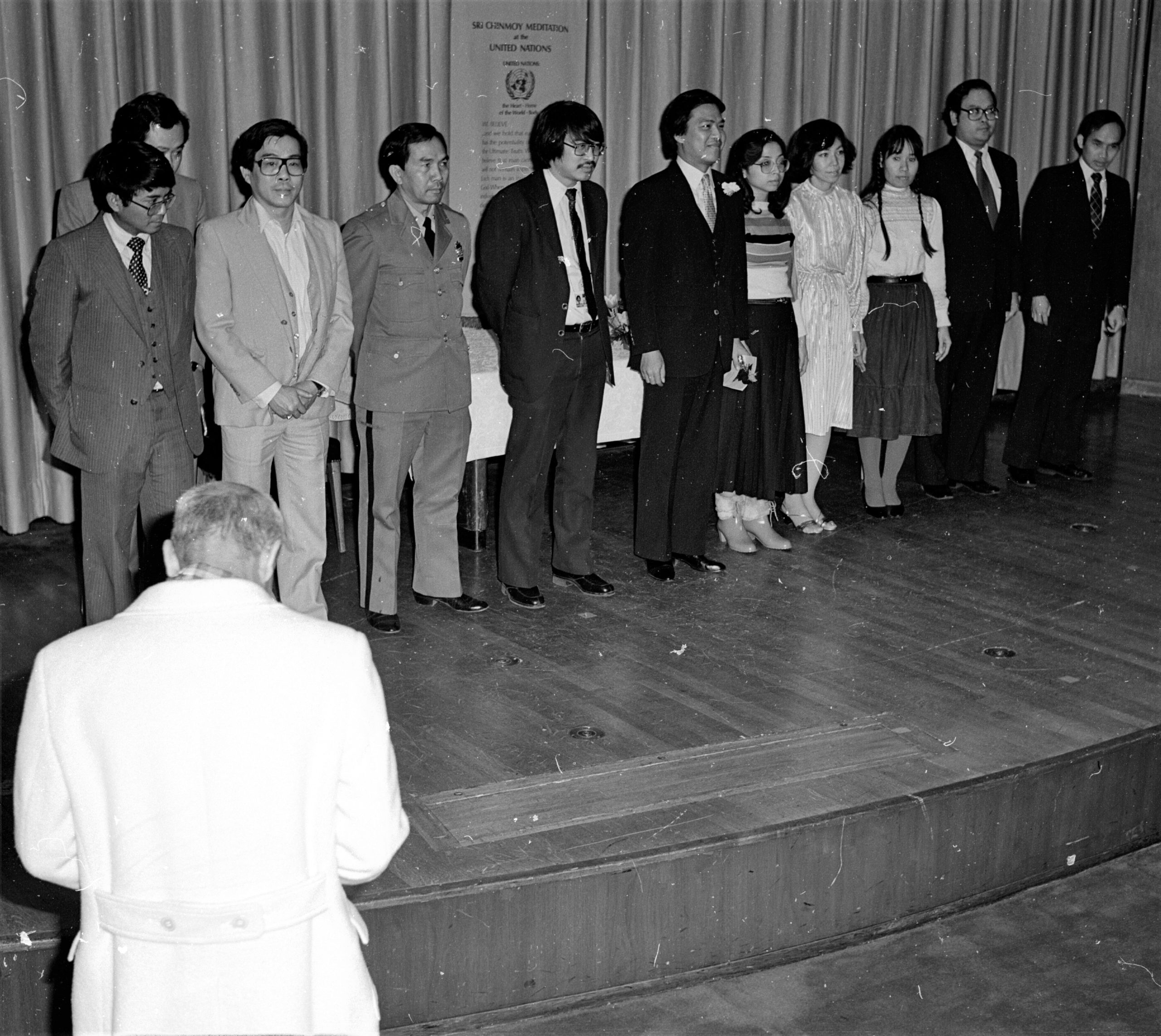
Shraddha
Gallery:
- 1983-02feb20-Thailand-prog-national-Anthem-guests-scaled.jpg – 395 KB
- 1983-02feb20-Thailand-prog-at-un002-crp-scaled.jpg -391 KB
- 1983-02feb20-Thailand-prog-at-un-Birbhongse-Kasemsr-PRep-Thailand-speaks-scaled.jpg – 245 KB
- 1983-02feb20-Thailand-prog-national Anthem-guests-crp
- 1983-02feb20-Thailand-prog-national Anthem-guests-crp-2
- 1983-02feb20-Thailand-prog-at-un-Birbhongse-Kasemsr-PRep-Thailand-speaks-crp
Gallery 2:
- Shraddha
- Shraddha
- Shraddha
- Shraddha
- Shraddha
- Shraddha
- Shraddha
- Shraddha
- Shraddha
- Shraddha
- Shraddha
- Shraddha
- Shraddha
- Shraddha
- Shraddha
- Shraddha
